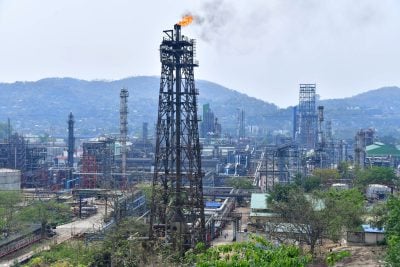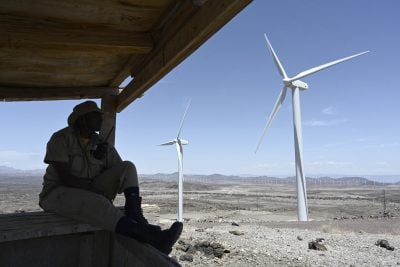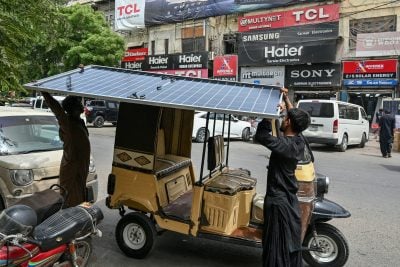The housing and port sectors are currently the most vibrant areas for infrastructural investment in West Africa. Unlike in Southern, North and East Africa, no port or ports stand head and shoulders above the rest in the region. Senegal, Ghana, Côte d’Ivoire and Nigeria all have ports with ambitions to dominate regional trade but none have yet achieved super port status. This situation could be good for competition but is actually largely the result of a lack of investment in all four countries over many years.
Now, however, Tema and Takoradi are benefiting from Ghana’s economic boom, foreign investors are increasing capacity in Nigeria and the government of Senegal is confident that Dakar can come to dominate trade on the Atlantic coast.
Global port operator DP World has just completed the development of Dakar Container Terminal with handling capacity of 600,000 TEU a year and will now operate it under a 20-year concession. Sultan Ahmed bin Sulayem, the chairman of DP World, said: “The expansion of the terminal and the upgrading of the facilities and equipment make DP World Dakar the most modern and efficient terminal in western Africa. Our experience is that economies grow as efficient infrastructure comes on line and today it opens up a whole new world of economic possibilities for Senegal and West African communities.”
While most ports in West Africa experience long delays, where vessels must wait several days for a berth, container ships using Senegal can book a specific time in advance. In addition, DP World says that hauliers now benefit from turnaround times of about half an hour, while trucks must wait hours to even enter the port area at many Nigerian ports. Hopefully, the modern container facilities on offer in Dakar and Tema will force the Nigerian authorities and operators to improve standards in that country.
Although improved standards are also visible in much smaller housing schemes in the region, the much publicised $10bn jumbo housing deal between the government of Ghana and South Korea’s STX Corporation finally seems to have collapsed.
The company had agreed to construct 200,000 homes, partly for government and partly for private sale. However, speaking at a press conference in January, Ghana’s President John Atta Mills announced: “We have some difficulties with the STX project and as a president, I am eating humble pie to say that we are looking for alternatives. They’ve spent so much time on boardroom wrangling and the time has come that we can no longer wait for them to resolve their problem … We are now looking for alternatives and very soon we’ll come out [with them].”
In the re-emerging economies of Sierra Leone and Liberia, it is the mining sector that is driving infrastructural development. A string of integrated port and rail projects are being constructed to enable the export of mining commodities but while these will generate GDP and some employment, there are question marks over how much impact they will have in assisting in wider national infrastructural rehabilitation.
Some of the rail lines run from remote areas to dedicated dry bulk handling facilities at the coast. However, the existence of such railways will enable the recommencement of more general freight and passenger services where possible. In addition, the dredging of harbours and reconstruction of general port infrastructure will encourage the introduction of general cargo and container services.
To take one example, African Minerals began exporting iron ore from its Tonkolili mine, 200km east of Freetown in Sierra Leone, at the end of last year. All output will be transported along the Pepel-Marampa Railway and then via the port of Pepel, both of which are operated by African Minerals under 99-year concessions, and both of which were damaged during the civil war. The company aims to export 15m tonnes this year.
However, Mike Jones, head of corporate development and investor relations, revealed: “Phase 2 of the project, which will boost iron ore mining capacity to about 45m tonnes of iron ore per year, will start in the second half [of 2012] subject to completion of engineering studies and subject to funding.”
This will require large rail and port capacity that could be exploited by other businesses. It is particularly important to ensure that infrastructural development is not concentrated in Freetown but will be spread around the country. Apart from anything else, this will help to overcome the economic imbalances that partly triggered the conflict in the first place
Want to continue reading? Subscribe today.
You've read all your free articles for this month! Subscribe now to enjoy full access to our content.
Digital Monthly
£8.00 / month
Receive full unlimited access to our articles, opinions, podcasts and more.
Digital Yearly
£70.00 / year
Our best value offer - save £26 and gain access to all of our digital content for an entire year!

 Sign in with Google
Sign in with Google 




